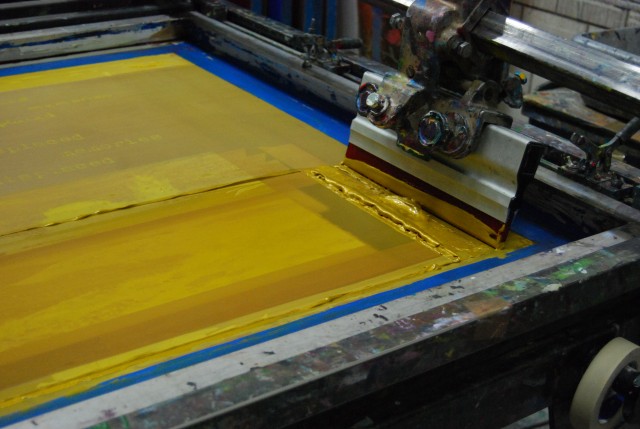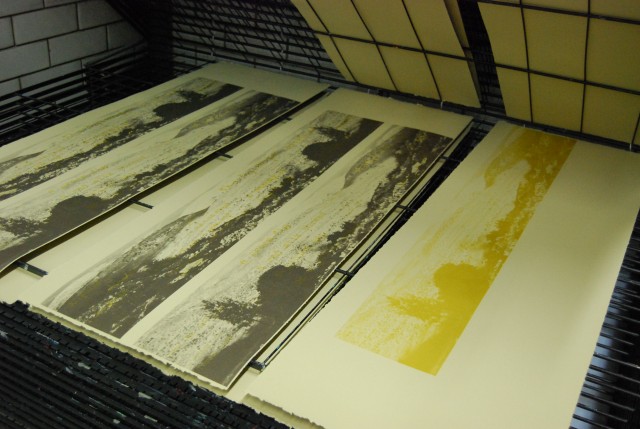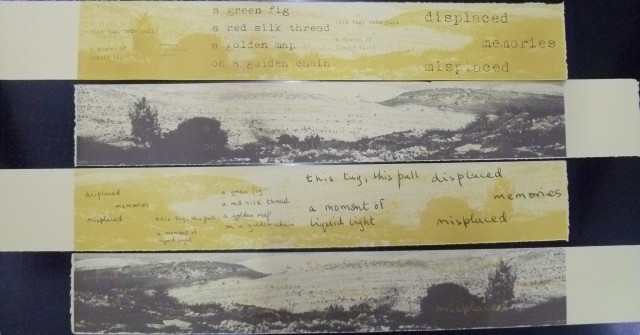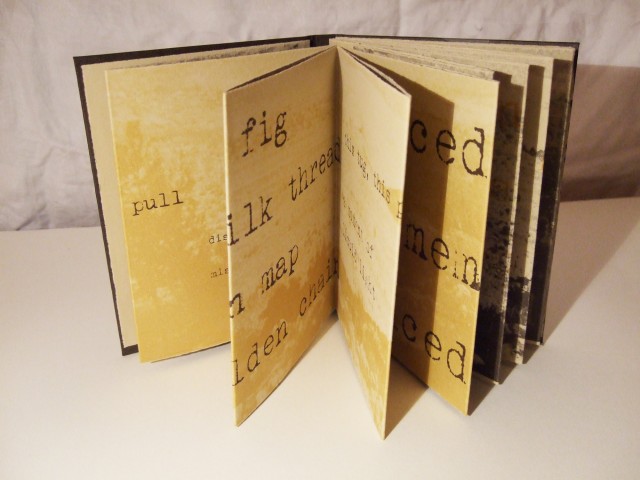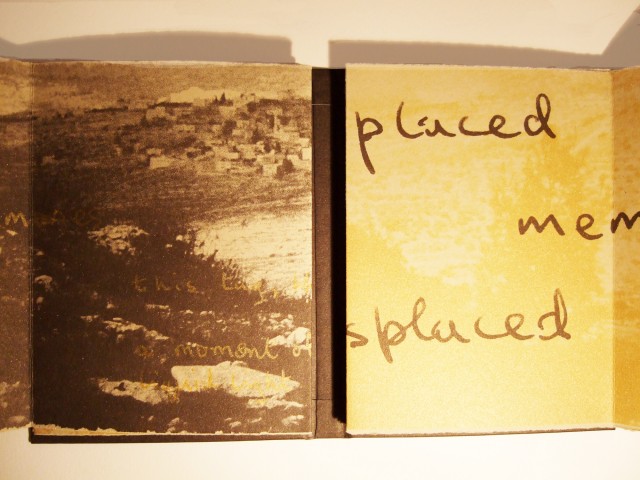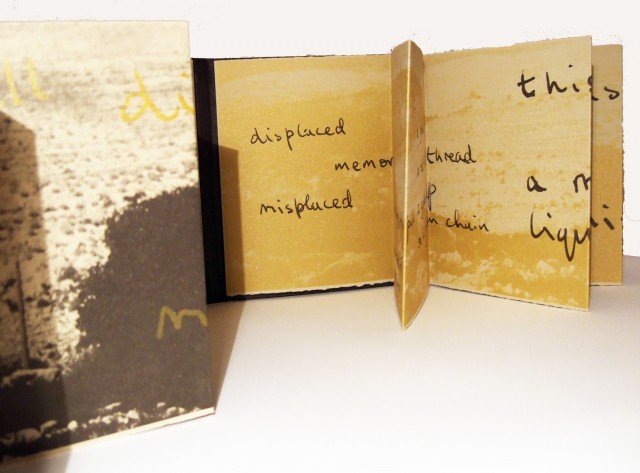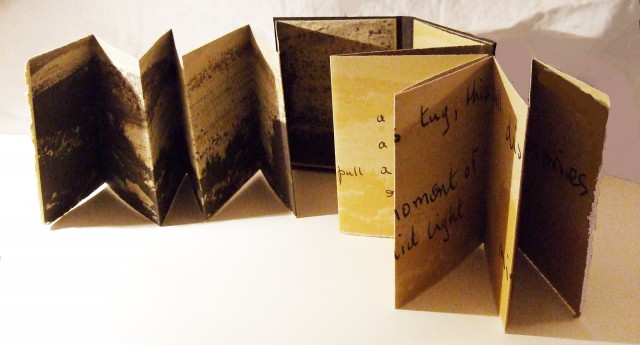Wishing You Were Here by Robert Hampson and Leena Nammari
This collaboration began as a starting point with the idea that one can acquire memories that are not one’s own. Both Leena and Robert share a fascination with memory, forgetting and displacement. Both wished to work with an aspect of memory, and agreed that this was to be a true collaboration and not simply an illustration or explication. They considered their attachments to distant homelands, to ‘map-loading’ (a technique employed by Hampson in another commission), and also, some alternative to a dialogue in person, since they were each travelling and in separate cities. Ramallah, the birthplace of Nammari, and the city where she was visiting a friend, became a kind of focal point. The title of these two related artists’ books contained, as Robert Hampson writes, "the ambiguities of ‘you’ and ‘here’ and with the jauntiness of the postcard holiday greeting set against the serious issues of memory and displacement." Nammari’s photographs, the city’s troubled history, the politics of displacement, the sadness of an ill friend, and the return home all informed the elements of text and images as they began to come together, uniquely, as interwoven elements in a book of golden colours and texts of longing and memory.
Robert Hampson is Professor of Modern Literature at Royal Holloway, University of London. He has been involved in contemporary innovative poetry since the early 1970s. He co-edited the magazine Alembic during the 1970s and the influential critical work New British Poetries: The Scope of the Possible (MUP, 1993). Recent publications include Assembled Fugitives (Stride, 2001); Seaport (Shearsman, 2009); and an explanation of colours (Veer, 2010).
Leena Nammari is a Palestinian artist practicing in Scotland. She has lived in the UK for over 20 years. Through artistic work, she gently probes issues that emanate from her constant search of where it is comfortable, and what is home. She is constantly manipulating and creating narratives, tales, memories that are not necessarily true, but touching upon emotions that are true to all.



